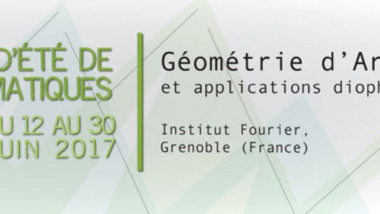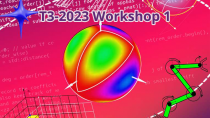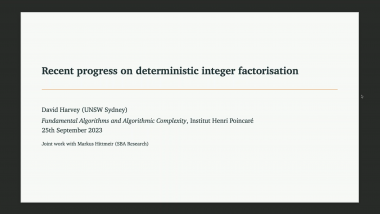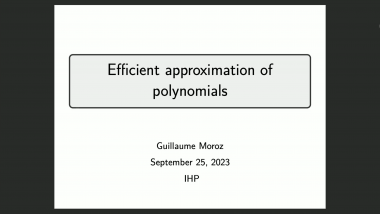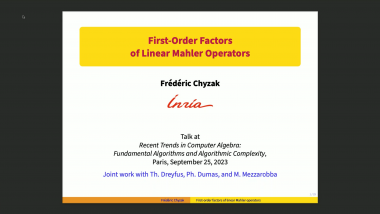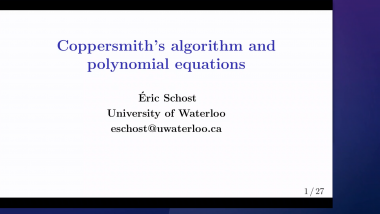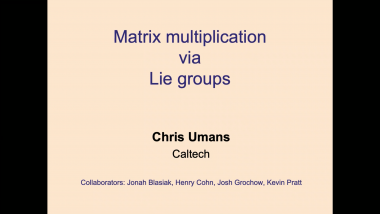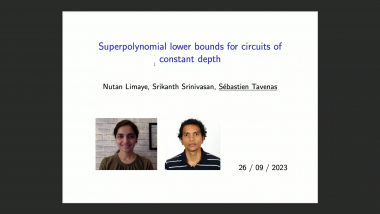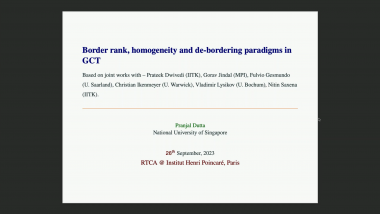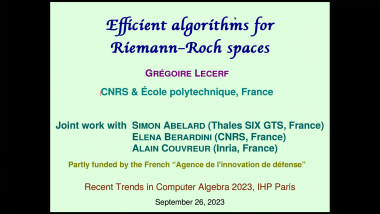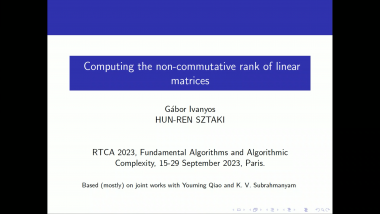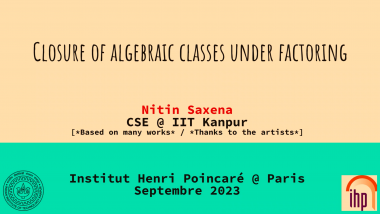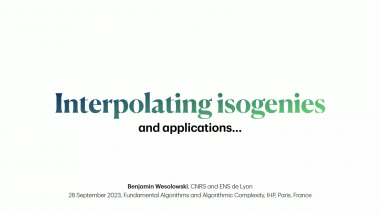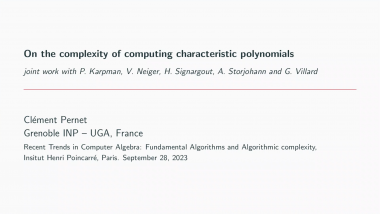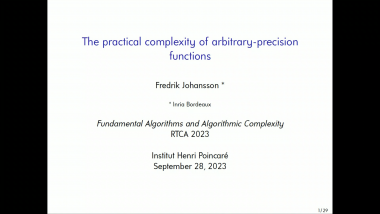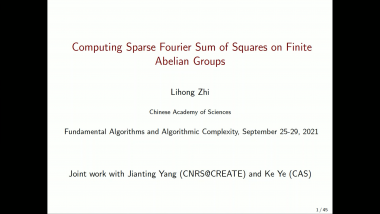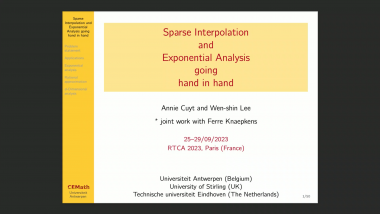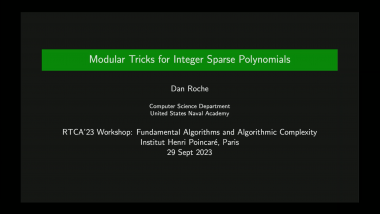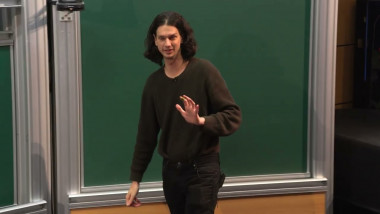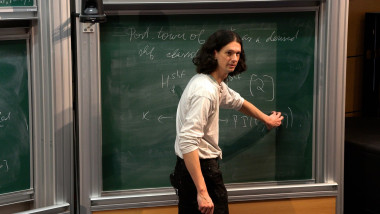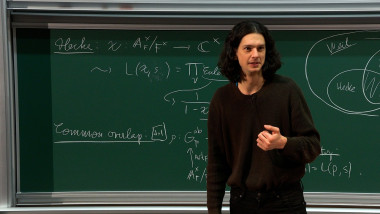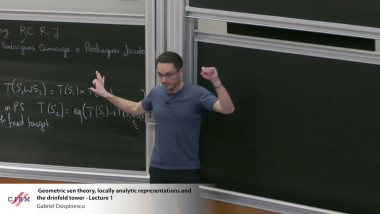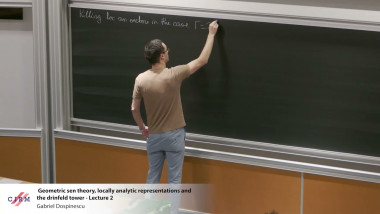Border rank, homogeneity and de-bordering paradigms in GCT
Border (or approximative) complexity of polynomials plays an integral role in GCT (Geometric Complexity Theory) approach to P!=NP. This raises an important basic question: can arbitrary approximations of simple polynomials involve exponential-precision which may not be efficiently simulable? Circuits of depth 3 or 4, are a good testing ground for this question. Recently, Kumar proved that _any_ polynomial f can be approximated arbitrarily well by restrictions of the polynomial x1 ... xn - 1 for n large enough. In this talk, we will see a stronger connection (& reverse) of this result with the border rank of f, and how homogeneity can play an important role in border complexity. Furthermore, we will see the border of constant top-fanin depth-3 circuits (which is far more general than x1...xn -1) is relatively easy & hierarchical - it can be computed by a polynomial-size algebraic branching program (ABP). This is based on the joint works with -- 1) Prateek Dwivedi & Nitin Saxena (FOCS'21) 2) Nitin Saxena (FOCS'22) 3) Fulvio Gesmundo, Christian Ikenmeyer, Gorav Jindal and Vladimir Lysikov (submitted).
